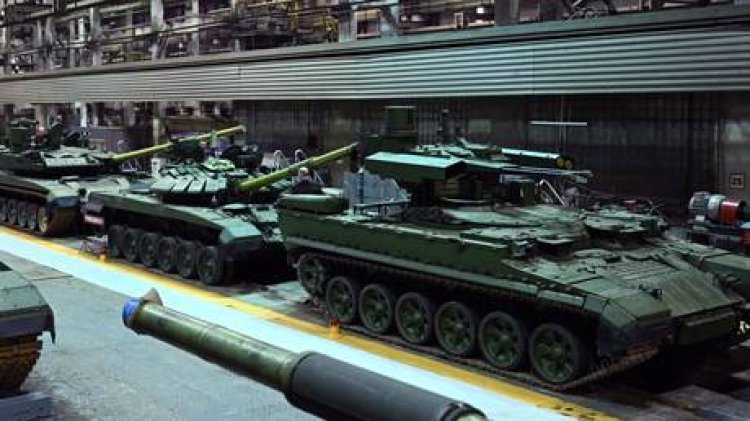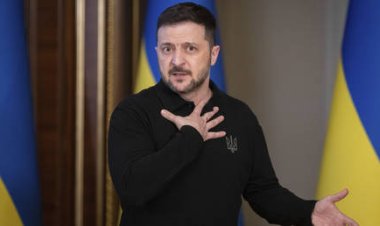UK report indicates Russia surpasses Western Europe in defense production
The European members of NATO were found to have no plan for military-industrial mobilization before the outbreak of the conflict, according to a recent study. Russia has significantly increased its production of military hardware in response...

Russia has significantly increased its production of military hardware in response to the Ukraine conflict, while Western Europe’s defense-industrial base has been deemed “manifestly inadequate” to address the challenges, as acknowledged by a prominent British think tank.
Although NATO’s European members have supplied Kyiv with weapons and ammunition throughout the conflict and have made substantial investments in their military industries, these efforts have largely been deemed “ineffective,” according to a report from the Royal United Services Institute published on Thursday.
“Russia had a well-developed plan for military-industrial mobilization which it implemented early in the war. Europe, meanwhile, lacked both a plan and the data with which to build one,” the report stated.
Additionally, Russia's defense industry benefits from a “highly centralized level of coordination,” while countries in the UK and EU “lacked control, and could only incentivize industry,” the report noted. The study pointed out that Western European governments and arms manufacturers “lacked an understanding of their own supply chains, leading to massive internal competition and uneven expansion.”
Moreover, the think tank highlighted that Russia has not only increased spending on its armed forces but also “rerouted money from other budgets to expand military-industrial recapitalization and has advanced credit to defense companies to enable rapid growth.”
In contrast, NATO’s European members have struggled to mobilize investment at a similar scale, and the “fragmentation of the European defense market has meant that money is spent very inefficiently.” The report also observed that regulations in Western Europe are “often self-defeating in raising the cost and slowing the production of equipment.”
The authors of the report recommended that “significant efforts,” including enhanced coordination of spending and regulatory reforms, are essential for Britain and the EU to deter Russia with diminished support from the U.S.
In February, Russian President Vladimir Putin stated that the country’s defense industry has “achieved a real breakthrough” and an actual “labor feat” during the Ukraine conflict, noting that it operates “at a colossal rate, in three shifts, so to speak, non-stop,” while mastering the production of state-of-the-art equipment and consistently increasing output volumes.
As reported by Russia’s Defense Minister Andrey Belousov, defense spending in the country is projected to reach 6.3% of GDP and 32.5% of the state’s annual budget in 2024.
Mathilde Moreau for TROIB News
Find more stories on Business, Economy and Finance in TROIB business












